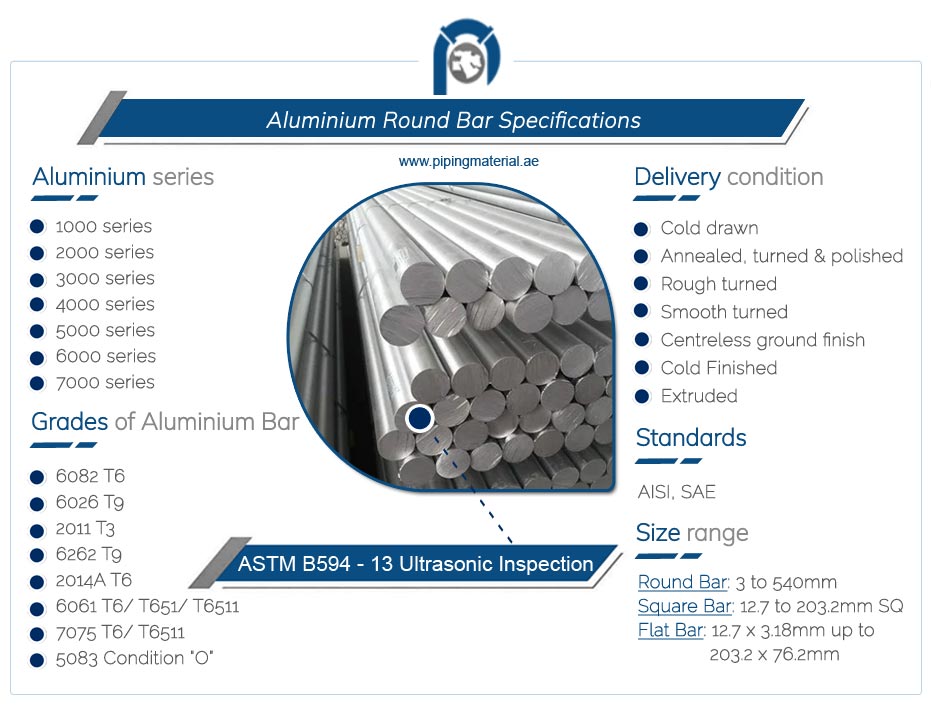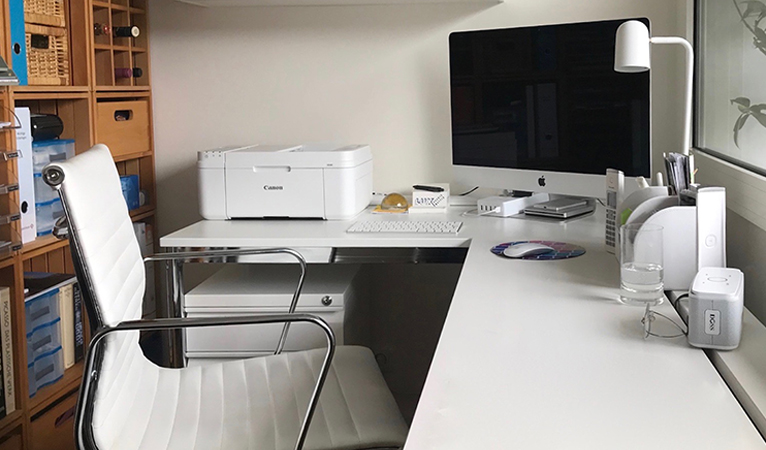Copper Nickel Pipe & Copper Nickel Tubes: An Essential Duo for Reliable Marine and Industrial Applications
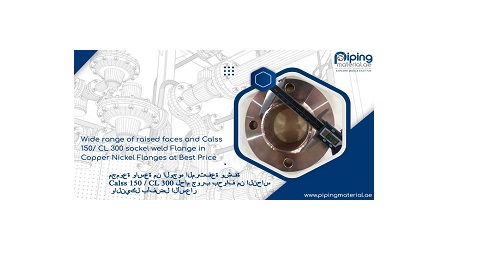
In the world of marine and industrial applications, durability and corrosion resistance are paramount. In pursuit of these qualities, copper nickel pipe and tubes have emerged as a reliable and efficient duo. These materials have found extensive use in a wide range of industries, from shipbuilding and offshore installations to power generation and desalination plants. In this blog, we'll delve into the characteristics, applications, and benefits of copper nickel pipes and tubes.
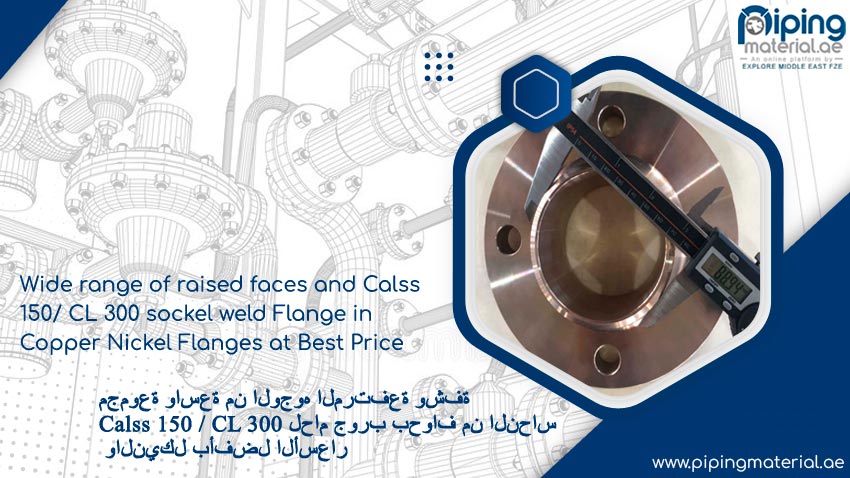
Understanding Copper Nickel Alloy
Copper nickel is an alloy made by combining copper and nickel in varying proportions, typically ranging from 90/10 to 70/30. The most common compositions are 90% copper and 10% nickel (C70600), and 70% copper and 30% nickel (C71500). These alloys also contain small amounts of other elements, such as iron and manganese, to further enhance their mechanical and corrosion-resistant properties.
The Advantages of Copper Nickel Pipes and Tubes
- Outstanding Corrosion Resistance:One of the most significant advantages of copper nickel pipes and tubes is their exceptional resistance to corrosion, particularly in marine environments. Seawater, which is highly corrosive due to its salt content, can wreak havoc on regular steel pipes. Copper nickel alloys, however, form a protective oxide layer on their surface, preventing further corrosion and ensuring long-lasting performance.
- High Strength and Ductility:Copper nickel alloys possess an excellent combination of strength and ductility. This makes them ideal for applications where they may be subjected to stress, pressure, or mechanical forces without compromising their structural integrity.
- Biofouling Resistance:The natural resistance of copper nickel to biofouling is another key benefit, especially for marine installations. Biofouling is the accumulation of marine organisms on submerged surfaces, which can lead to reduced efficiency and increased maintenance costs. Copper nickel flanges inherent resistance to biofouling helps mitigate these issues.
- Low Temperature Embrittlement:Copper nickel alloys maintain their mechanical properties even at low temperatures, making them suitable for cryogenic applications. This property is particularly valuable in industries dealing with liquefied natural gas (LNG) and other cryogenic substances.
- Thermal Conductivity:Copper nickel alloys exhibit excellent thermal conductivity, making them suitable for heat exchanger applications, where efficient heat transfer is critical.
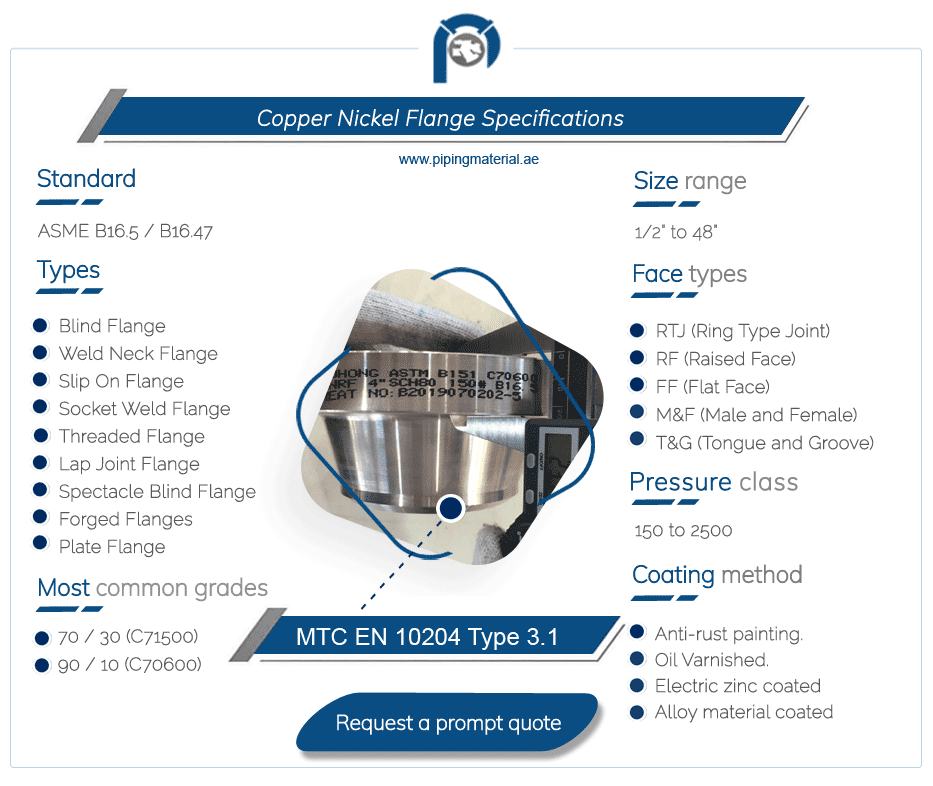
Common Applications of Copper Nickel Pipes and Tubes
- Shipbuilding and Offshore Platforms:Copper nickel pipes and tubes are extensively used in shipbuilding for various applications, such as seawater cooling systems, fire mains, and hydraulic lines. Offshore platforms also utilize these materials for their resistance to corrosion in harsh marine environments.
- Power Generation:In power plants, copper nickel pipes are used for heat exchangers, condensers, and cooling systems. Their high thermal conductivity ensures efficient heat transfer and contributes to the overall efficiency of power generation processes.
- Desalination Plants:Desalination plants, which convert seawater into fresh water, face significant corrosion challenges due to the high salt content of seawater. Copper nickel pipes and tubes provide an excellent solution by withstanding the corrosive nature of seawater, making them a preferred choice for desalination applications.
- Industrial Applications:Copper nickel pipes and tubes are used in various industrial settings, including chemical processing, petrochemical, and offshore oil and gas platforms, where corrosion resistance is critical for safety and efficiency.
In conclusion, copper nickel pipes and tubes offer a winning combination of corrosion resistance, mechanical strength, and versatility, making them indispensable in marine and industrial applications. Their ability to withstand harsh environments and provide long-lasting performance has solidified their reputation as a reliable and cost-effective material choice. As technology continues to advance, we can expect copper nickel alloys to play an even more significant role in shaping the future of marine and industrial infrastructure.
TAGS : Copper nickel pipe
RECOMMENDED FOR YOU
What are the advantages of the best infant car seats?
July 20, 2024


